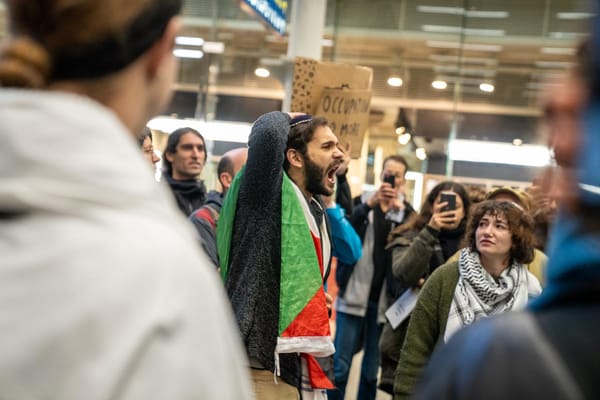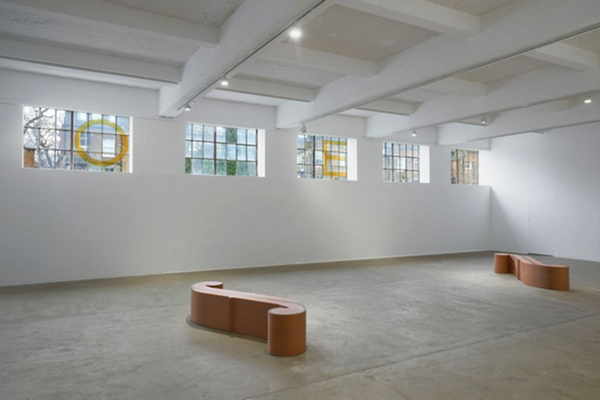Jewish antiracism must start at home
#JewsForBlackLivesMatter risks reinscribing Ashkenormativity.

George Floyd’s death has sent British Jewry jostling to prove its antiracist credentials. The Board of Deputies of British Jews (BoD), an institution generally averse to commenting on current affairs with no obvious Jewish angle, has picked up on the antiracist zeitgeist and launched a brand new Commission on Racial Inclusivity in the Jewish Community. The Commission, to be chaired by the New Statesman’s Stephen Bush, intends to examine prejudice within the Jewish community – in part through the testimonies of Black Jews and Jews of Colour – with the aim of producing a report in six months’ time. The Jewish Chronicle, an outlet not known for its antiracism, has been awash with comment pieces clamouring for Jews to “stand alongside our Black friends and neighbours”. Meanwhile, a petition by alumni of the Jewish Free School (JFS) demanding a more racially inclusive curriculum has attracted over 500 signatures in two days.
All of these efforts have positioned Jews as allies to the Black struggle, and therefore implicitly as white and Ashkenazi. The authors of the JFS petition initially failed to account for the need for Jewish education to include not only Black but also Mizrahi, Sephardi and Yemenite Jewish histories and cultures (they mentioned Ethiopians, but only vis-a-vis police brutality); though they amended the letter after I brought this omission to their attention. It’s a similar story with the BoD, which has invited “Black British Jews and other Jews of Colour to come forward and give evidence” to its new Commission, making no specific mention of Mizrahi, Sephardi and Yemenite Jews.
The problem is symptomatic of a British Jewish society that tends to think of itself as homogenous, and in which the experiences, histories and cultures of Mizrahi, Sephardi and Yemenite Jews like me have been systemically sidelined. While intra- and extra-communal racism is a serious problem among British Jews, antiblackness is only one vector of this problem; another, just as urgent, is the ethnocultural-religious hierarchy that structures all of British Jewish communal life.
Diverse as the Mizrahi, Sephardi and Yemenite experience in the UK may be, I’m confident that most have experienced the racism that infects Jewish spaces. From flagrant abuse to microaggressions – being called P*kis, terrorists and N*gn*g in the playground; being singled out by synagogue security; being told “you don’t look Jewish” – routine prejudice has forced many of us to adopt Ashkenazi behavioural codes, or to turn our backs on Judaism entirely.
Sure, British Jewry has never inflicted upon non-Ashkenazim the wanton cruelty experienced by Mizrahi Jews in Israel. No Yemenite babies were kidnapped here; no segregationist housing or discriminatory schooling policies enacted; no system of theft and pauperisation maintained. Nor is the prejudice we face as more secular Jews as severe as it is in Charedi circles, where it remains an open secret that a shidduch with someone Mizrahi or Sephardi is undesirable; with someone Black, unthinkable. Rather, the primary mode of violence against us has been epistemic: our systematic erasure from the collective imagination.
For our marginalisation is underpinned by a British Jewish education system that – as well as failing to prepare Jewish students for the real world when it comes to questions of Israel-Palestine – does not equip its students with a deep knowledge of Jewish heterogeneity. From my own memory of JFS, no mention was ever made of the existence of Jews from Arab or African countries, let alone our histories, sages and customs. How many leave British Jewish schools knowing who Shalom Shabazi was? Able to name Moroccan sages, or identify the role of Jews in the Nahda (Arab Renaissance)? How many recognise the words Karaite, Kes, Farhud, Mimouna or Sigd? Know that the Italian fascists established a concentration camp in Libya, or that the Aden riots of 1947 were even deadlier than the pogroms in Kishinev in 1903 – so deadly that they decimated an ancient community which, despite being British subjects for 128 years, are remembered by a single coffee set at the Jewish Museum in Camden? Western Sephardim were the first to settle this country when Jews were readmitted in 1656. The Board of Deputies was originally a group of Sephardi deputados. Yet now, the extent of most British Jews’ knowledge of Sephardim is that we eat kitniyot at Pesach.
The effect of this systematic erasure is that mainstream British Jewish institutions such as the BoD feel confident that they are sole representatives of British Jewry. However, such institutions are increasingly unrepresentative of the communities they supposedly exist to serve. Since the Shoah, non-European Jewry has been repopulating and revitalising Jewish communities whose Ashkenazi populations were wiped out: North Africans in France, Libyans in Italy, Bukharans in Austria. The makeup and character of European Jewry has therefore shifted seismically, and it’s time our communal institutions reflected that.
This renewed attempt to address antiblackness in the Jewish community is noble. However, the hastiness with which we have jumped on the antiracist bandwagon risks leaving Mizrahi, Sephardi and Yemenite Jews in the dust once more. Unless we recognise the many forms that intra-Jewish racism takes, the various victims of its whiteness and Eurocentricity, our efforts will be insincere, worse still, ineffectual.
Leeor Ohayon is a writer of Moroccan and Adeni descent from north-east London.




